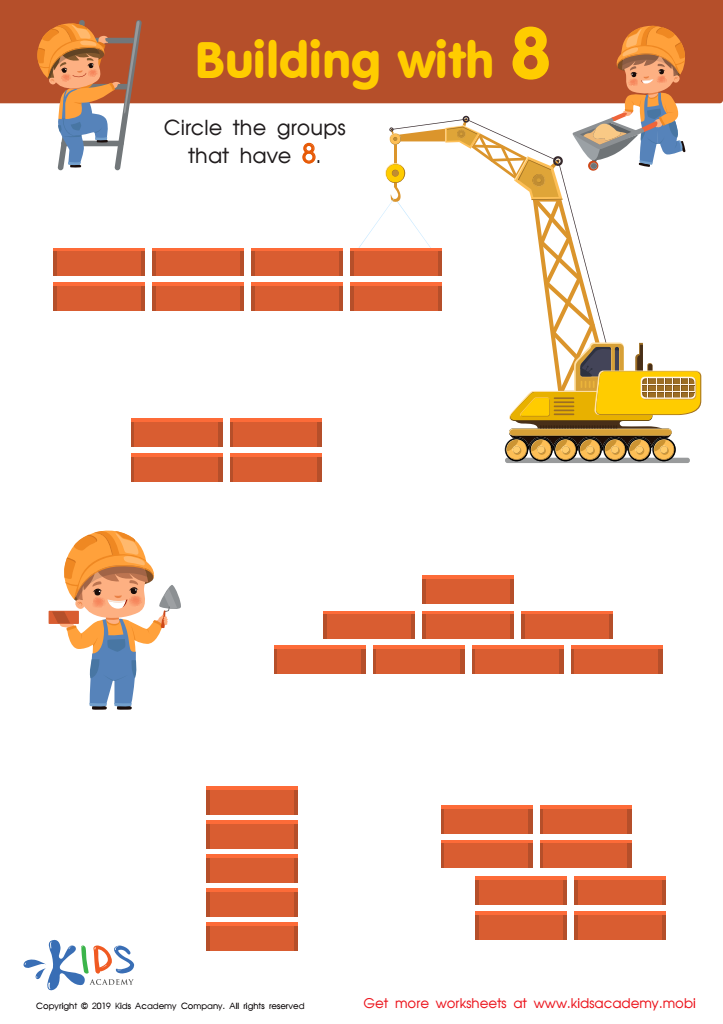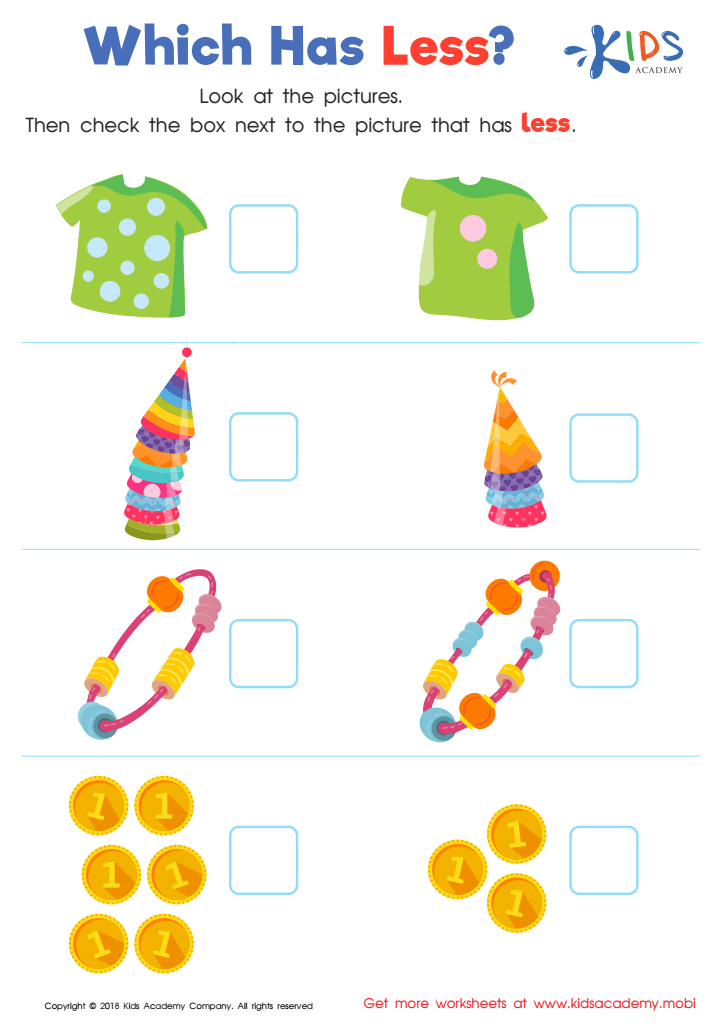Understanding quantity Easy Math Worksheets for 6-Year-Olds
3 filtered results
-
From - To
Discover "Understanding Quantity Easy Math Worksheets for 6-Year-Olds," a fun and engaging resource designed to help young learners grasp fundamental math concepts. These worksheets focus on recognizing, comparing, and organizing numbers, enabling children to develop a strong foundational understanding of quantity. With colorful illustrations and interactive exercises, kids will enjoy practicing counting, identifying greater and lesser amounts, and enhancing their number sense. Perfect for classroom activities or home learning, these worksheets support early math skills, foster analytical thinking, and encourage independent learning. Empower your 6-year-old with the confidence to excel in math—explore our worksheets today!


Building with 8 Worksheet


Counting Seedlings Worksheet


Which Has Less? Worksheet
Understanding quantity and foundational math concepts is crucial for 6-year-olds as it lays the groundwork for their future academic success. At this age, children are developing critical cognitive skills that will influence their approach to learning. Mastering concepts of quantity helps them grasp basic arithmetic, enabling them to make sense of addition, subtraction, and even simple problem-solving tasks.
Parents and teachers should care about these early math skills because they directly affect a child's confidence, self-esteem, and attitude towards learning. When children understand quantity, they can relate math to real-life situations, making the subject more engaging and relevant. For instance, counting objects, comparing quantities, and understanding greater or lesser helps them develop logical reasoning and promotes analytical thinking.
Additionally, early mastery of math concepts can identify potential learning challenges sooner, allowing for targeted interventions that support not only math proficiency but overall learning and cognitive development. Celebrating small mathematical achievements encourages a growth mindset, fostering perseverance and resilience.
By prioritizing understanding of quantity in young learners, we empower them to succeed not just in math, but in applying these skills across various subjects throughout their educational journey. Ultimately, it benefits their lifelong learning and daily lives.
 Assign to My Students
Assign to My Students





















